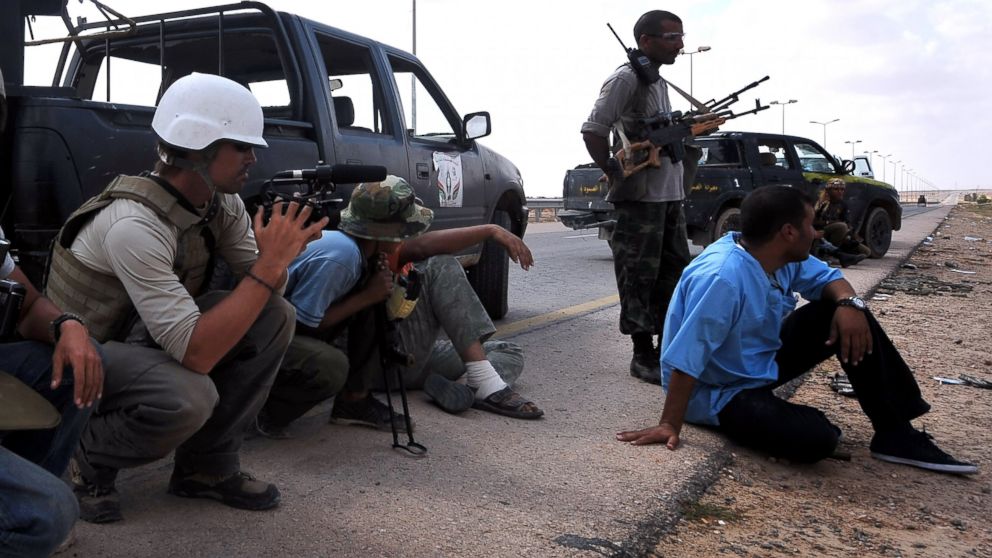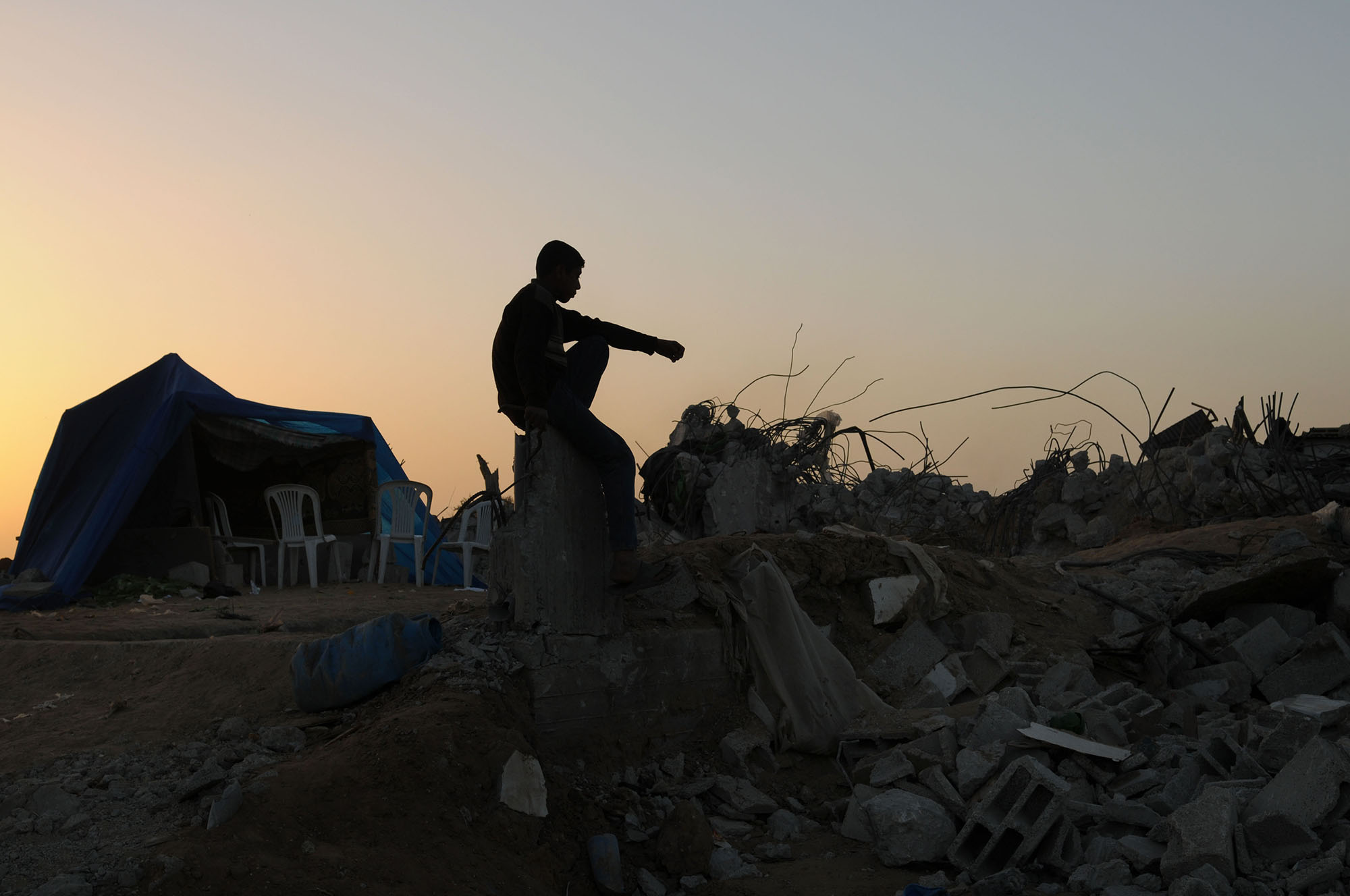James Foley Among Many Young, Close-Knit Freelance War Reporters
Hungry reporters cover the most dangerous conflicts in the world.

— -- James Foley became the face of freelance journalists covering conflicts abroad when he was taken hostage and killed, earlier this week, by the terror group ISIS.
But there are dozens of young reporters covering the conflicts in Syria, Iraq, Gaza and elsewhere in the world who take similar risks: a band of brothers and sisters who rely on one another for help traveling to, reporting on and surviving in dangerous war zones.
Their work appears in major U.S. publications, for readers who often have no idea that the contributors are freelancers, working on their own from the world's most dangerous places.
"The Arab Spring, freelancers got quite close covering the uprising in Egypt and Libya, where most of us were cutting our teeth," reporter Sarah Topol told ABC News today. "Young journalists came into Cairo, shared hotel rooms, information, and kind of a general optimism that we were on the cusp of witnessing and recording seismic change."
Topol, 29, is from New York City originally. When asked why she and other young reporters go into such a dangerous line of work, with no guarantee of a salary or benefits or, in fact, surviving, she said it’s "because we care."

"It's obviously not for the money or the stability or even the recognition," she said. "I could be cynical and say part of it is inherently selfish, there aren't a ton of people who will run towards danger. But I think if we didn't believe in some way that our work would actually make some kind of difference, most of us wouldn't do it. It's something I know my friends I think a lot about."
Kate Brooks, 36, has been photographing conflicts for more than 15 years, and has photographed Pakistan, Afghanistan, and Iraq. Her work has appeared in major U.S. publications such as TIME, The New Yorker, Newsweek, The New York Times. Recently, she has been covering conflicts in Africa.
"It’s a very small group of people who work in conflict zones,” Brooks said. “We basically all know each other or are connected in one way or another. After many years of shared experiences, we’re bonded in ways that make us like family. I think only soldiers can understand what I mean.
"For me photography is about being the eyes for those who cannot see," she said.
Topol was among the dozens of freelance journalists who went to Libya in 2011 to cover the revolution there, and describes getting to know other reporters and photographers who then went to cover Syria, including Foley.
In a piece she wrote for Newsweek in 2012, Topol explained how Foley and photographer Nicole Tsung, 29, were covering the Syrian conflict in Aleppo, and Tsung had relayed how many inexperienced freelancers she had seen coming to Syria to try and report. Foley disappeared just a month after Topol's piece was published.
Brooks said she didn't know Foley personally, but acted as a "conduit" for those looking for him and those who may have known more about his whereabouts. "I am devastated by his death," she said.
The troupe of hungry freelancers stay in close contact with one another, using Facebook, GChat and Skype to stay in touch from places around the world, Topol said. "I would say [we] try to meet up when we are in the same city. There's always a freelancer's couch to crash on)."
Matthew Van Dyke, a documentary filmmaker who first went to the Middle East to cover conflicts and then became involved in the actual fighting in Libya, told ABC News he became friends with Foley in Libya.
"There's not a lot of people who will risk their life to do work in a conflict zone, so we all get to know each other," Van Dyke said.
He also knows Steven Sotloff, another freelancer being held by ISIS and threatened with death. Van Dyke and Sotloff met up in Washington, D.C., in the spring of 2013 to discuss Sotloff's upcoming trip to Syria. Sotloff disappeared last August.
Some of the freelancers who cover conflicts abroad do so on assignment from U.S. magazines or newspapers; others go to these places on their own and then try to sell the stories they've found upon their arrival.
Often the latter option can be incredibly difficult financially. Brooks criticized publications that don't adequately train or compensate contributors or do their best to ensure their safety.
"Most alarming is the growing trend for media outlets to limit their responsibility when freelancers are injured or abducted or to even blatantly state in their contracts that they have zero responsibility for their contributors for any reason under any circumstances. I consider that to be immoral and unethical," she said.
"In my opinion it’s not acceptable for publications to distance themselves from the security and wellbeing of their contributors.”
Topol said she began working in Libya as a freelancer for GQ, then later started working on her own.
In addition to GQ, Topol has written for the Atlantic, Businessweek, Harper's, Newsweek and Foreign Policy. She has won awards for her writing, including the 2012 Kurt Schork Award in International Journalism, the only award for freelance conflict writing, in honor of a report who was killed in Sierra Leone. A story she wrote on Bedouins’ taking foreigners hostage was named a Best American Travel Writing piece in 2013.
"You have to be some kind of insane, delusional optimist to be a freelancer in the Middle East these days, to believe that the risks you take are worth it, that people care about these stories, and that the media industry will continue to function and pay you,” Topol said. “That said, there are still plenty of us, which is heartening.”
ABC News' Matthew Mosk contributed reporting to this story.




